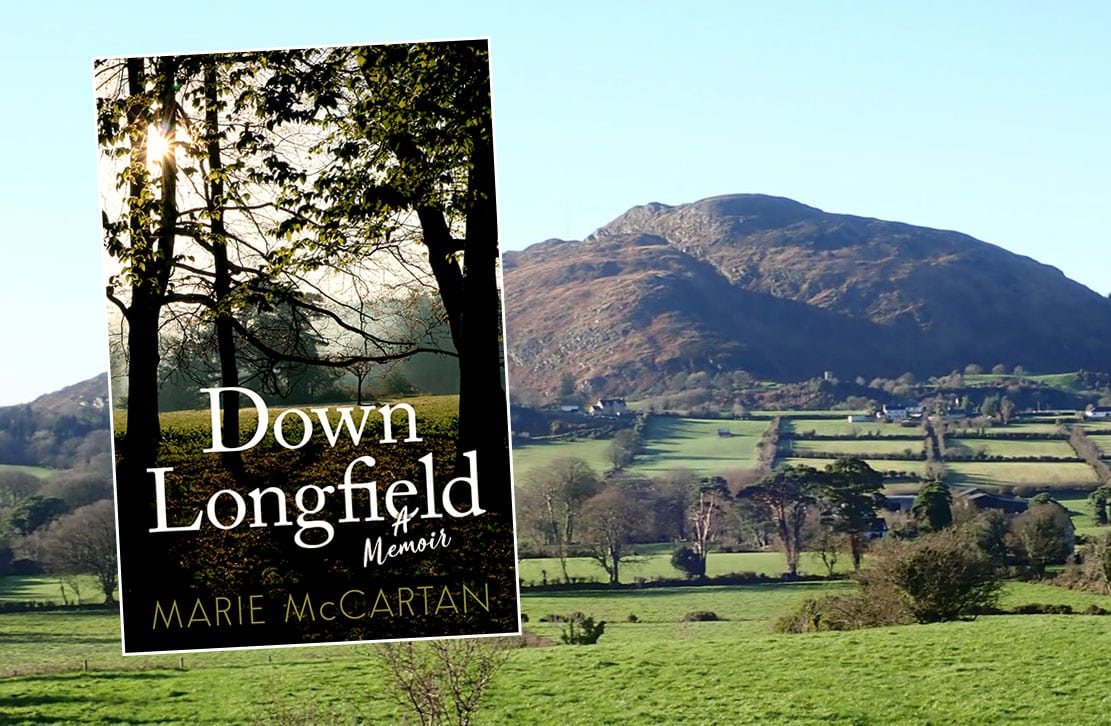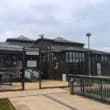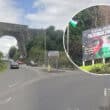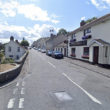
Life was not quite a bed of roses in the Forkhill area of south Armagh during the 50s and 60s.
Like most rural areas in Ulster, electricity was conspicuous by its absence, cars were thin on the ground, social life was limited, and holidays were simply not on the agenda.
Such indeed was the rather spartan lifestyle that people became well acquainted with self-sacrifice and made the most of their limited luxuries and benefits.
Indeed, growing up in the Forkhill area during that particular period involved self-sacrifice to a huge degree and a willingness to make do and mend when various situations arose.
Marie McCartan, who has penned a new book Down Longfield, which gives an insight into life within the community, was among those who sampled life at the cutting edge but happily lived to tell the tale.
Even school did not offer the warmth, affection, and respect that it can do today, and like her fellow pupils, Marie learned how to digest setbacks of both the emotional and physical variety.
It is a measure of the hardship the family endured in those times that when her family moved into a new house “down the yard” from their first home, the cost of installing electricity was still beyond the family budget.
The absence of running water or electricity meant that life had to be tolerated rather than lived to the full as we know it nowadays, but Marie recalls that the family still managed, even in the worst of bad weather.
It was not until Marie was ten years of age that “the family got the water in”, as she herself now puts it, and she recalls that at that time there was a strong belief doing the rounds that if people got the water in, they would be flooded out!
“That’s the way it was in those days. People appeared to be reluctant in some circumstances to get running water into their homes, but I could see no harm in this. In fact, indeed it was a bonus for people and I was very glad to see water being more readily available. It was the only way forward and we have benefitted ever since, when you think about it,” points out Marie.
And school life was anything but ideal when it is considered that even a visit from the school dentist was, in Marie’s words, “a total shock to the system.”
Yet the setbacks were encountered with confidence and coolness as Marie and her friends began to develop their personalities and become young people of the real world.
Events in the bigger world, too, were taking their toll on the residents of Forkhill, such as soldiers from Ireland going to the Congo with the UN. People from Forkhill said the Rosary at night in tandem with the soldiers who were abroad, thus lending support in their own special way to the troops.
But subsequently, Marie experienced a change in life when she enrolled in Our Lady’s, Newry, where she studied for the greater part of the 1960s.
The school saw her step up in her studies and make new friends, something that pleased her greatly.
“It was good at Our Lady’s. Pupils were treated with respect, and they in turn put a lot of effort into their studies. They knew they were getting a real chance to move on in life and they, for the most part, tried to make the most of it when they were given the opportunity,” recalls Marie.
“The nuns and lay teachers at Our Lady’s were very civil ladies, and they put a huge effort into their pupils. Mind you, the fact that they wanted us to absorb everything made its own demands on us.”
When her studies at Our Lady’s were completed in 1969, Marie went to Belfast City Hospital where she trained to be a nurse.
It meant she became acquainted with a host of new friends and joined a profession to which she was to become totally committed.
The Troubles, of course, were just about to start then, and this ensured that Marie kept her guard up, particularly when she was in Belfast. Nonetheless, she followed her vocation enthusiastically, immersing herself in ceremonies and other events as time passed.
Some thirty years have elapsed since the death of Marie’s mother, and she still retains happy memories of her.
She points out that two of her mother’s sisters became a nun and a nurse respectively and reflects on the fact that her mother would have liked to have been better educated and indeed wanted her own daughters to be educated.
Indeed, Marie was very much into her faith and telling her children to do what we were supposed to do in this connection.
Now living on Slieve Gullion, an area she loves, Marie has watched with considerable interest as there is now greater interest among young people, in particular, in traditional music in the area as a whole.
Indeed, music is very much part and parcel of life there, as is Gaelic football, which saw the whole region transported onto a cloud of ecstasy last year when Armagh won the All-Ireland title for the second time in their history.
But while the entire county of Armagh was given just cause to celebrate last year, there is still optimism that a third capture of ‘Sam’ might not be beyond the borders of probability.
“It would be great to win ‘Sam’ again because success of that nature stirs the greater part of the county and everyone feels they just have to join the celebrations,” reflects Marie. “My seven-year-old grandson loves to see Armagh do well, and just as other youngsters do, he takes his interest in football from successes like this.”
“Obviously, we have had difficult times in the past, but we are moving forward now in positive mode. That’s hugely encouraging, and I sincerely hope that people get the chance to enjoy life going forward. With the help of God, this will prove to be the case.”
‘Down Longfield’, is a vivid and nostalgic account of growing up near Forkhill village in the turbulent 1950’s and 60s and shares the resilience of a community living under curfew on a patrolled border, where smugglers outwit customs and the Foresters’ hall is a makeshift classroom, cinema, dole office, dance hall, youth club and theatre.
Cars taking teenagers to dances in Dundalk are bought for a fiver at the local scrapyard and held together with binder twine. The label from a Guinness bottle is used for a tax disc. ‘Down Longfield’ weaves a lively tapestry of family life in the last century before the escalating conflict changes lives forever.
Marie Mc Cartan is a former finalist in the Bard of Armagh Humourous Poetry Competition. Her work includes a book of poetry- ‘The Fairy Tree’, and ‘On the Border- a Novel of South Armagh 1921-22’.
‘Down Longfield’ is available from ePub, Amazon and Kindle, Mc Guill’s Café, Dromintee, Shanroe’s Village Shop, Mullaghbane and the Vivo supermarket, Silverbridge.






